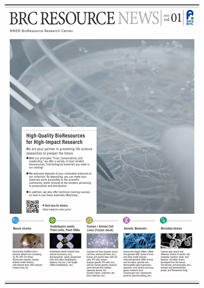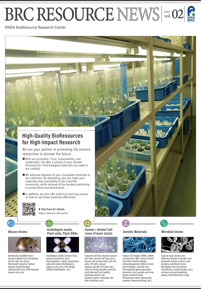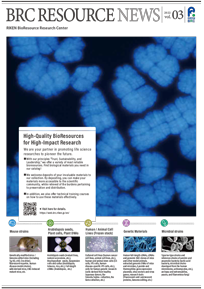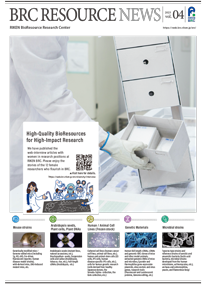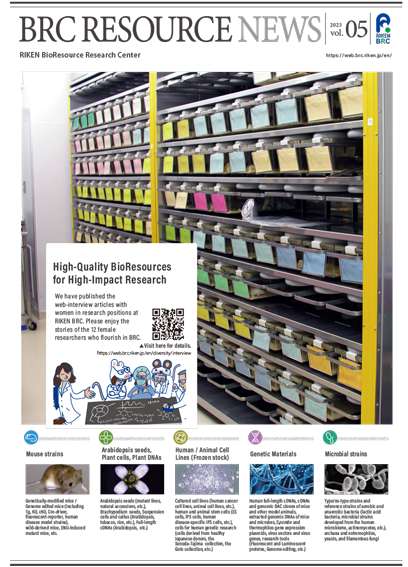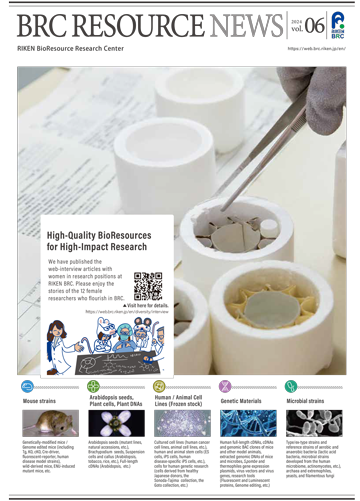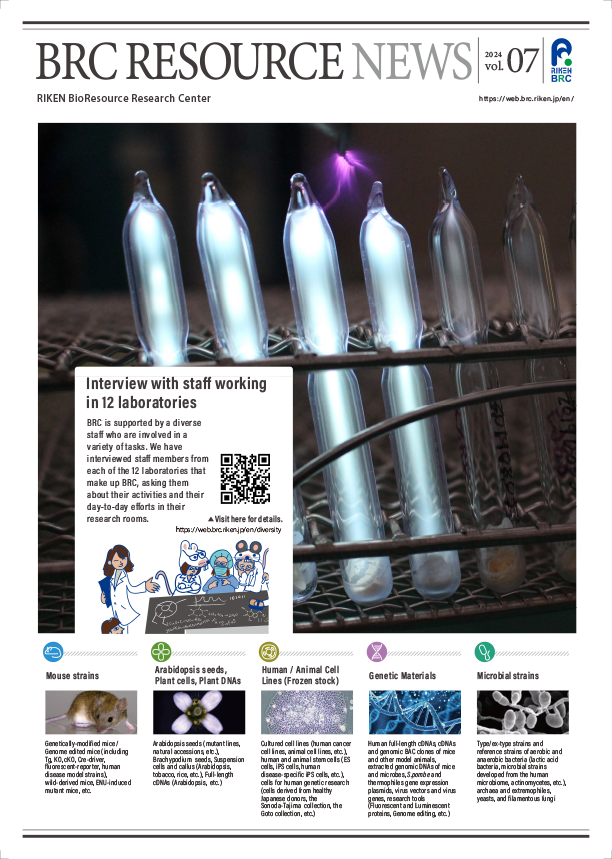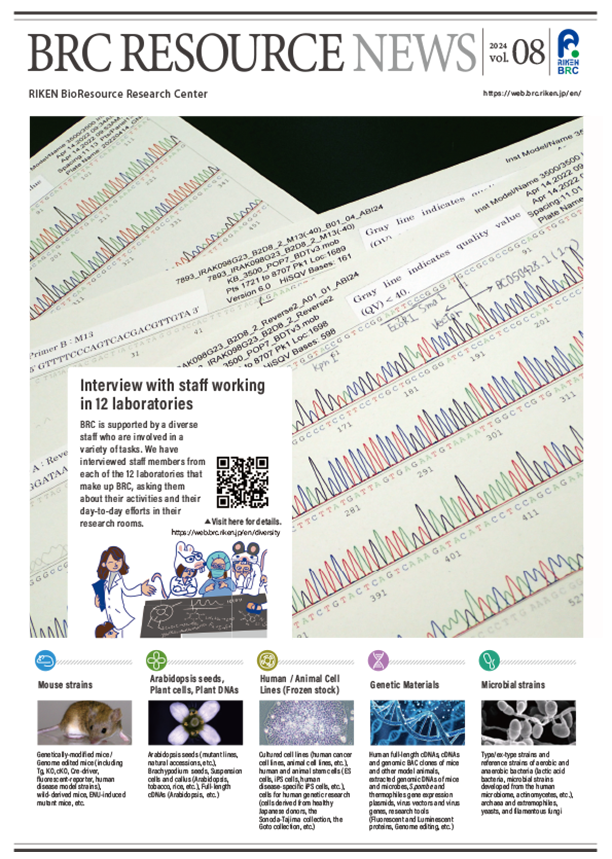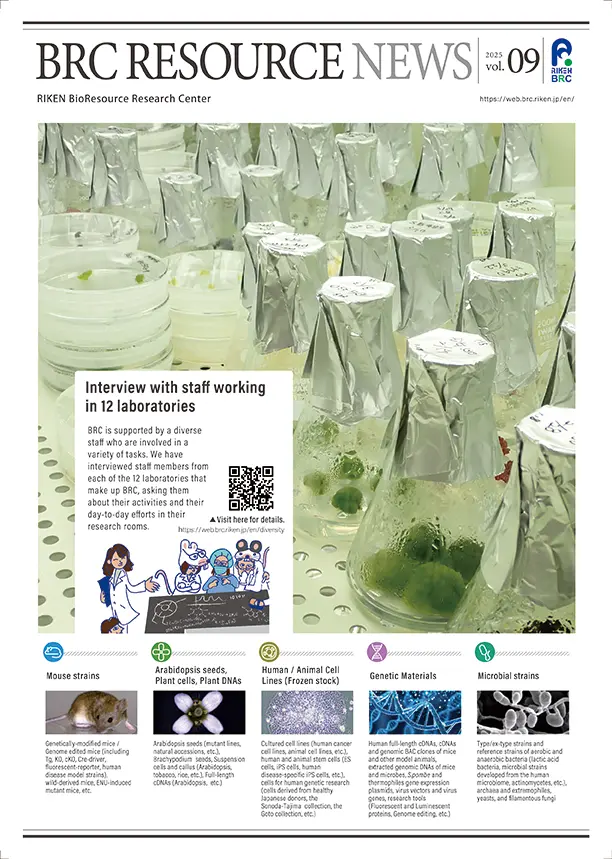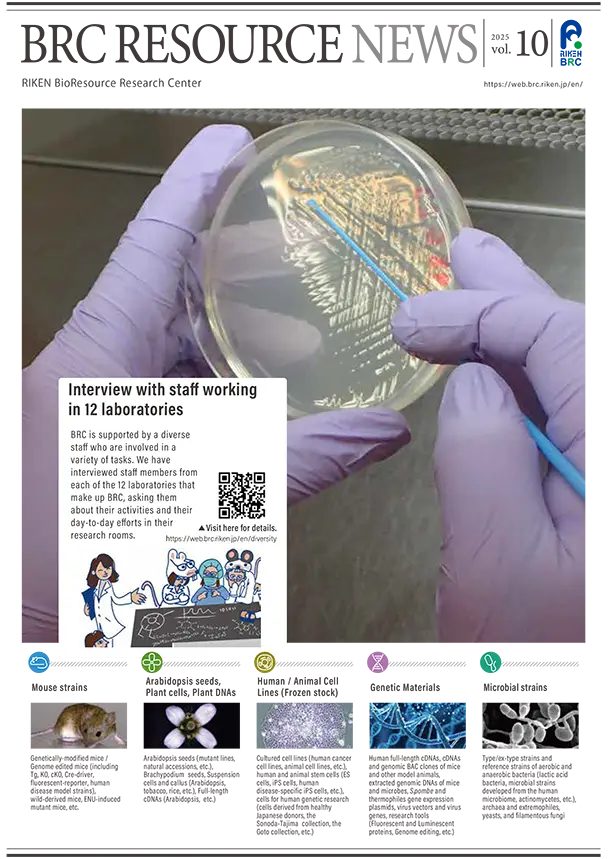BRC RESOURCE NEWS
High-Quality BioResources for High-Impact Research
We are your partner in promoting life science researches to pioneer the future.
- With our principles “Trust, Sustainability, and Leadership,” we offer a variety of most reliable bioresources. Find biological materials you need in our catalog!
- We welcome deposits of your invaluable materials to our collection. By depositing, you can make your materials more accessible to the scientific community, while relieved of the burdens pertaining to preservation and distribution.
- In addition, we also offer technical training courses on how to use these materials effectively.
Latest news(2026 vol.11)

Experimental Animal Division
Congratulations to Dr. Shimon Sakaguchi on receiving the Nobel Prize in Physiology or Medicine
Professor Shimon Sakaguchi of Osaka University published a paper that led to the discovery of regulatory T cells (J Immunol. 1995 Aug 1;155(3):1151-64.) while he was affiliated at the RIKEN Tsukuba Life Science Center prior to its reorganization into RIKEN BRC. We have published a special article, “Celebrating the Nobel Prize in Physiology or Medicine 2025 Awarded to Professor Shimon Sakaguchi”.
Experimental Plant Division
New Release: Arabidopsis EMS-mutagenized population
Arabidopsis EMS-mutagenized population (Col-0 background; M2 generation) is now available. Information about the seed is also available in the Exp-Plant.
Exp-Plant – EMS treated seed line
New Release: Arabidopsis EMS-mutagenized population (Col-0 background; M2 generation)
Cell Engineering Division
We have a large collection of animal cell lines.
Our cell bank provides a wide range of animal cell lines for diverse research needs. Currently, we hold cell lines from about 40 animal species, including mink, enabling researchers to conveniently access the cells they require in one place.

Gene Engineering Division
Distribution of Large-Volume Plasmids to Begin in April 2026.
We will begin providing highly purified, ready-to-use Large-Volume plasmids (25 microgram or more) for our most frequently requested items.
This new format is ideal for researchers who wish to save time and effort in plasmid preparation.
Microbe Division (JCM)
Prokaryotic strains contributing proposals of new phyla and kingdoms
The International Code of Nomenclature of Prokaryotes formally covers the high-level taxonomic ranks “phylum”, “kingdom” and “domain.” JCM holds a number of archaeal and bacterial strains contributing proposals of new phyla and kingdoms.




